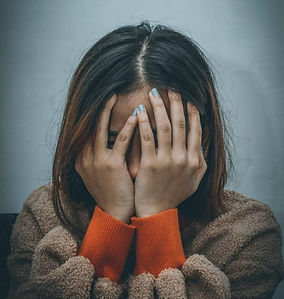"Recognizing and treating trauma-related disorders early can significantly improve patient outcomes and reduce chronic disability."
Psychiatry for Trauma & PTSD Can Improve:
-
Feel fewer flashbacks and bad memories that pop up suddenly
-
Feel less jumpy or on edge all the time
-
Manage feelings of anxiety, sadness, or mood swings better
-
Sleep more peacefully and have fewer nightmares
-
Handle stress and things that remind you of the trauma more easily
-
Take part in daily activities and connect with others more comfortably
-
Get support through medicines and working closely with your care team
-
Build strength and feel more in control of your emotions over time

What is Psychiatry for PTSD? At Empower Psychiatry, we help people who’ve been through trauma and are dealing with things like flashbacks, anxiety, or trouble sleeping. Our providers understand how trauma affects your brain and feelings. They can offer medicine and work together with therapists to create a plan that helps you feel safer, manage your symptoms, and start healing at your own pace.
Is Psychiatry an Effective Treatment for PTSD? Yes, psychiatry is an effective treatment for many people with PTSD. Psychiatrists use a combination of medication and therapy recommendations to help reduce symptoms like flashbacks, anxiety, and sleep problems. Treatment is personalized to your needs, helping you regain control, improve daily functioning, and support long-term healing.
A Reflection of a Deeper Problem
Re-experiencing the Trauma
People with PTSD often have flashbacks or vivid memories that feel like the traumatic event is happening all over again. Nightmares related to the trauma are common, and certain sights, sounds, or smells can trigger these distressing memories.

Avoidance
You might avoid places, people, or activities that remind you of the trauma because they bring up painful memories or feelings. This can also include avoiding talking or thinking about what happened.

Negative Changes in Thoughts and Mood
PTSD can cause feelings of numbness or detachment from others, making it hard to experience positive emotions. You may feel hopeless about the future, guilty, or blame yourself for the trauma. It’s also common to have trouble remembering parts of the event or to have a persistent negative outlook.

Increased Arousal and Reactivity
This includes being easily startled or feeling constantly “on edge.” You might have trouble sleeping, feel irritable or angry, or have difficulty concentrating. These symptoms make it hard to relax or feel safe.


